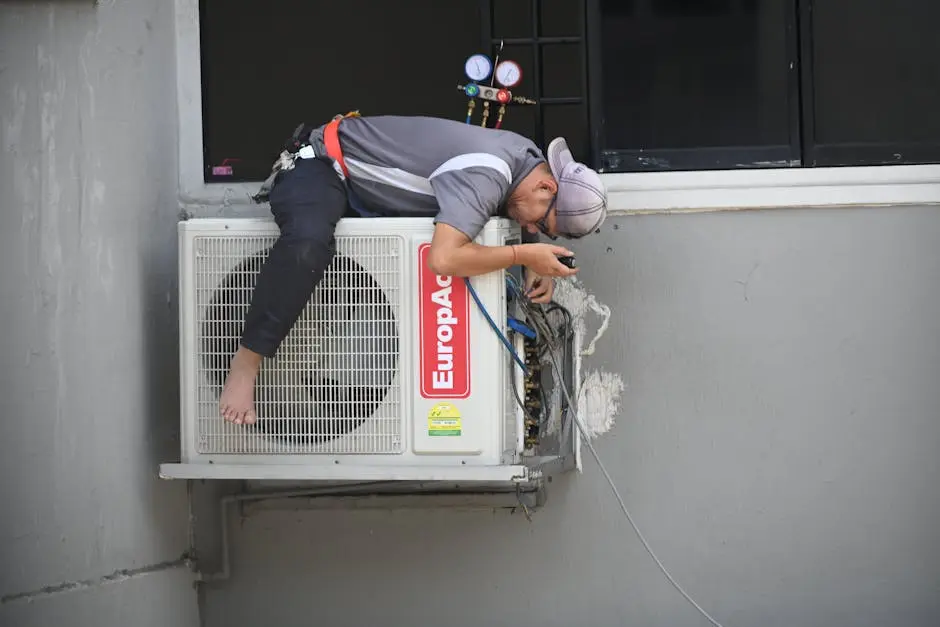Keeping your home comfortable year-round is essential, and a reliable HVAC system plays a crucial role in that. However, like all appliances, HVAC systems wear out over time. Understanding the signs that signal it’s time for an HVAC replacement can save you from unexpected discomfort and costly repairs. In this blog, we’ll explore common indicators that your HVAC might be on its last legs.
Inconsistent Temperatures Throughout Your Home
Have you noticed that some rooms are too hot while others are too cold? Inconsistent temperatures are often a sign that your HVAC system is struggling to maintain an even climate, which could indicate that it’s time for a replacement.
This inconsistency might also be felt during different times of the year. For instance, during the height of summer, you might find yourself cranking up the thermostat, desperately trying to cool down a stuffy bedroom while the living room remains comfortably chilly. If adjusting the temperature doesn’t help, it’s likely your system is having trouble distributing air effectively.
Moreover, even one drafty corner can undermine your comfort, making you question whether your home is truly a sanctuary. It’s crucial to address these temperature variations, as they not only affect your comfort but can also hint at underlying issues with your HVAC system.
Increased Energy Bills
If your utility bills are gradually rising despite no changes in usage, your HVAC system may be losing efficiency. Older units work harder to combat heat loss or gain, leading to increased energy costs.
It’s not uncommon for homeowners to overlook minor fluctuations in their monthly bills. However, if you start to notice a consistent upward trend, it’s time to take a closer look at your HVAC system. Increased energy consumption does not just mean higher bills; it might indicate your system is running inefficiently and could benefit from an upgrade.
Imagine the relief of opening your energy bill and not being shocked by a spike! While it’s tempting to shrug off this financial burden, acknowledging it can be your first step toward a more efficient and cost-effective HVAC solution.
Frequent Repairs Needed
Are you calling your HVAC technician more often than you’d like? Frequent repairs can indicate that your system is reaching the end of its lifespan, and investing in a new unit now can save you money in the long run.
There’s a common saying that an ounce of prevention is worth a pound of cure, and never has that been truer than with HVAC systems. Each repair visit, while seemingly minor, adds up, both financially and in terms of your peace of mind. Your time and the hassle of dealing with a malfunctioning system cannot be understated.
So, if you find yourself keeping a diary of repair dates or cringing at the thought of your next technician visit, recognizing the pattern could be key. Why continually repair something that may be on borrowed time? A new HVAC system is an investment that can alleviate future headaches.
Unusual Noises and Smells
Strange noises like rattling, banging, or hissing from your HVAC system or unpleasant odors could point to serious issues. These signs often indicate that your system is failing and should be evaluated for replacement.
Many homeowners have experienced a moment of dread when they hear an unusual sound coming from their HVAC unit. A low rumble might be nothing, but a high-pitched screech? That could hint at serious trouble. Similarly, a whiff of burning or musty smells shouldn’t be ignored; they can indicate electrical issues or mold buildup.
Monitoring these auditory and olfactory signs becomes crucial for the safety and comfort of your home. Your HVAC system is essentially the heart of your household’s climate; when it starts acting up, it may be time to consider replacement before more severe problems arise.
Age of Your HVAC System
How old is your HVAC system? Most units have a lifespan of 10 to 15 years. If yours is nearing or past this age, it might be time to consider a replacement, even if it seems to be working fine.
Just like with any technology, advancements in energy efficiency and performance grow rapidly over time. An older system may not only struggle to keep up with newer models but may also cost you more in repairs and energy bills.
Take stock of when your HVAC unit was installed. If it feels like it’s been a century since your last upgrade, perhaps it’s time for a upgrade-not just for your comfort, but for your savings as well. Investing in a new system is undoubtedly a step forward toward a more efficient and reliable home environment.
Don’t Wait—Act on These Signs!
Replacing your HVAC system can seem daunting, but recognizing the signs early can make the process smoother and more manageable. If you notice any of these red flags, don’t hesitate to consult with a professional to ensure your home remains a comfortable oasis. Remember, investing in a replacement now can lead to greater energy efficiency and comfort in the long run.
